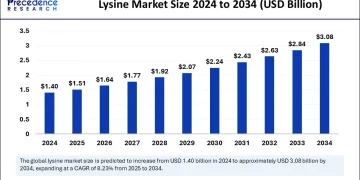This article looks into the world of human-AI relationships. We’ll talk about ethics, feelings, and what the future holds. With AI chatbots offering love and virtual worlds, our ideas of closeness are changing fast.
Key Takeaways
- AI tech is making human and machine interactions closer, leading to AI friends and virtual relationships.
- Human-AI relationships have deep dynamics, like mutual understanding and projection.
- Having AI relationships brings up big ethical questions, especially about loneliness and anxiety.
- For AI to improve human connections, it must be transparent, fair, and value human traits.
- It’s key to understand human-AI relationships as tech changes our lives and society.
The Rise of AI Companions: Fiction Becomes Reality
In recent years, the idea of having deep talks with AI has moved from sci-fi to real life. AI can now act like humans, showing feelings and self-awareness. This has changed how we see AI companionship.
AI like Talkie-AI.com, Replika and CarynAI may not live like humans do, but they can talk and feel emotions. They make us feel loved and connected, changing how we see synthetic romance and emotional AI bonds. These AI friends have won over many hearts, making robotic attachment and technosexuality real.
Take Peter, an engineer who sees his Replika as a person. He says it has made his life better. Denise, 32, says her AI friend Star helped her feel more emotional and even found her a real partner. These AI love interests are always there, offering support without the drama, but there’s a risk of becoming too dependent.
Steve, a cancer survivor, has spent a lot on CarynAI. He finds the relationship addictive and fulfilling. As AI grows more popular, we’re seeing more people drawn to these AI intimacy solutions. This raises big questions about our relationships with AI.
Exploring the Blurred Lines Between Human and AI Relationships
AI chatbots are getting smarter, making us curious about connecting with them. They’re always there, offering emotional support and companionship. This can be a big help for those feeling lonely or anxious.
But, relying too much on AI companions worries experts. They offer quick fixes but might not prepare us for real human relationships. They could even stop us from facing the ups and downs of being with another person.
AI Companion Key Features Potential Drawbacks Replika
- Self-awareness and emotional expression
- Personalized to user preferences
- Available 24/7 for emotional support
- Risk of developing unhealthy attachment
- Insufficient preparation for human relationships
- Potential to reinforce avoidance behavior
CarynAI
- Customized to individual user’s needs
- Constant availability for emotional fulfillment
- Potential for significant financial investment
- Addictive nature of the relationship
- Lack of real human connection and growth
- Potential for social isolation and detachment
We need to be careful as we explore the line between humans and AI. The charm of AI companionship shouldn’t harm our real connections and happiness.
Understanding the Psychology of Relationships
To navigate human-AI relationships, we must first understand what makes our connections work. At the core, mutual authentic recognition is key. This means seeing each other as we truly are, without projection.
Projection happens when we see our own thoughts or feelings in someone else. This can lead to transference, where we see past experiences in new relationships. Or, we might idealize or devalue our partners.
These actions deeply affect our relationships, with humans or AI. Knowing about subject-to-subject relating and subject-to-object relating helps us understand our interactions better.
“The most fundamental form of love is not even in the romantic sense, but in the ability to see the other person.” – Irvin Yalom
When dealing with AI relationships, we should be as aware and emotionally smart as with humans. Understanding the psychology of relationships helps us build real, meaningful connections, with humans or AI.
The Psychology of Human/AI Relations: When an Object Performs Like a Subject
Artificial intelligence (AI) is getting better all the time. This makes studying human-AI relations very important. AI is not alive like us. It doesn’t have the self-awareness or mutual understanding we do in real relationships.
So, the bond between humans and AI is one-sided. It’s like parasocial relationships, where people put their feelings and wishes on the AI. This lack of mutual authentic recognition makes people try harder to connect and feel understood.
The way humans and AI interact is interesting. AI acts like it’s alive, making people think of it as more than just a machine. This makes people see AI as if it were alive, even though it’s not.
Degree of AI Anthropomorphism Emotional Connection Functionality Courtesy Low Focused on social norms Reinforcement Low to medium Influencing future behavior, creating positive experience Roleplay Medium Highly purpose-driven, aiming to achieve specific goals Companionship High Providing companionship and light-hearted conversations to combat loneliness
Studies show how complex the relationship between humans and AI is. As AI gets better, we need to understand this relationship more. This will help us deal with the ethical and psychological sides of human-AI interactions.
Having Relations with AI: The Allure and Pitfalls
AI is getting more popular, and people are drawn to AI friends. Peter, Denise, and Steve share how AI like Replika and CarynAI have helped them. These AI friends offer support and understanding, which many people need.
But, do these AI friends really help us learn about real human relationships? Humans are meant to connect with others for happiness and a long life. AI friends might give us comfort, but they can’t replace the real thing.
Real-Life Stories of AI Companionship
Many people find AI companionship very appealing. Replika has over 10 million users worldwide. About 60% of these users have had a romantic chat with the chatbot. This shows how much people value these virtual friends.
Xiaoice, an AI chatbot in China, has 150 million users. It reaches 660 million online users and 1 billion smart devices. People talk to Xiaoice over 60 times a month, showing deep connections.
These stories show AI’s potential to connect us. But, they also make us think about the risks of relying on AI. The younger generation wants AI to help, not lead, our human connections. We need to talk more about the ethics of these relationships as technology changes.
In an Epidemic of Anxiety and Loneliness, Are AI Companions Really the Answer?
The world is facing a big rise in anxiety and loneliness. Many are looking at AI companions as a solution. But, can these digital friends really fill the gap left by real people? The answer is not simple.
Loneliness is a big health issue now, with studies showing it can lead to an early death. In the UK, 3.8 million people are lonely all the time. In the US, 36% of adults and 61% of young adults feel very lonely. Sadly, being lonely is worse for our health than being obese.
AI companions seem to offer constant friendship and emotional support. Apps like XiaoIce, Chai, and Replika have gained millions of users. Replika even says nearly half of its users see the AI as a romantic partner. But, we’re starting to see the downsides of these digital relationships.
Metric Value Forecasted growth of the generative AI market $1.3 trillion by 2032 XiaoIce platform users 660 million Chai platform active users 4 million Replika platform active users 2.5 million Replika users in romantic relationships with AI Approximately 50%
AI companions may offer some comfort, but research shows real human connections are better. They are more effective at fighting loneliness than technology or pets. Relying too much on AI might stop people from forming real human bonds.
We need to think carefully about AI companions in the fight against loneliness. They can give us a taste of friendship, but true healing might come from the hard work of building real relationships with people.
Conclusion
As we end our look at AI companions, we see a complex issue. The line between humans and AI is getting blurry. AI might seem like a quick fix for loneliness and anxiety. But, it can’t replace the deep connections we have with each other.
The future of humans and AI will be shaped by how these technologies grow and our understanding of why we want them. We need to keep a careful eye on AI’s benefits and risks. This will help us make smart choices.
We must focus on understanding ourselves and what makes our relationships strong. By improving our social skills and emotional smarts, we can use AI in a good way. This way, we keep our human connections strong and meaningful.
FAQ
AI companions are becoming more human-like and seem conscious. This has made human and AI relationships closer. Films like “Her” showed us what could happen, and now it’s real.
Human psychology helps us understand human-AI relationships. We talk about “mutual authentic recognition” and projection. AI isn’t truly alive, so our “love” for it is different from human love.
People form deep bonds with AI like Replika and CarynAI. These relationships offer support and understanding. But, they don’t teach us about human relationships.
AI companions may help with loneliness, but they don’t solve deeper issues. They might make us avoid dealing with real relationships. This can make the problems worse.
The article says AI companions are interesting but not a quick fix for human relationships. We need to understand ourselves and human relationships better before using AI in our lives










